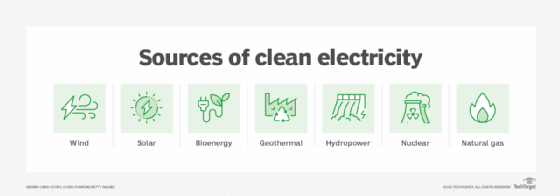solar power
What is solar power?
Solar power is a renewable form of energy harvested from the sun for the purpose of producing electricity or thermal energy (heat). Solar energy is free and plentiful, and its use doesn't impact the environment like fossil fuels, although solar power still comes with several challenges. Currently, there are two primary methods used to capture and transform solar energy: photovoltaics and concentrated solar power.
Interest in solar power has steadily grown in recent years because it relies exclusively on a renewable energy source. Solar energy is the most abundant energy resource on Earth. According to estimates from Statista, the world consumed about 25,500 terawatt-hours of electricity in 2022. However, the National Oceanic and Atmospheric Administration reported that 173,000 terawatts of solar energy continuously strike our planet, more than 10,000 times the world's total energy use. Through the use of solar power, the planet has an endless supply of renewable energy, at least as long as the sun exists.

Solar power advantages and disadvantages
Besides its abundant availability, solar power has a much lower environmental impact or carbon footprint than fossil fuels, in both its production and use. Solar power can be generated without emitting greenhouse gases, and it does not contribute to noise or water pollution, although it typically requires water to manufacture the solar panels.
Solar power is also cheaper than fossil fuels. Not only is it a free source of energy, but the systems used to collect and convert solar power are easier to maintain. In addition, solar power avoids the costs associated with environmental damage through extraction, spills and daily operations, as well as the medical costs associated with air and water pollution.
Despite its benefits, solar power also comes with several disadvantages. Among the biggest challenges are the costs of purchasing and installing the solar equipment. Solar power is also dependent on having plenty of adequate sunlight. For example, solar panels are effective only in daylight hours, do not work as well in certain regions and can be impacted by the weather. Large solar power plants can also disrupt local flora and fauna ecosystems.
Even so, many data centers and other facilities now use solar power to drive their operations, often in conjunction with additional sources of clean electricity, such as wind or tidal power. Organizations are moving to cleaner energy to save money, increase self-sufficiency and improve sustainability. Apple, Google and Microsoft are among the major IT companies investing in renewable energy and green IT.

Solar energy collection methods
The primary method used to collect solar energy and convert it into electricity is based on photovoltaic technologies. Solar panels that contain photovoltaic cells are installed in locations that maximize their exposure to solar energy. The cells are made up of a semiconductor material that generates a small amount of direct current when struck by the sun's photons. The cells convert the photons to electrons, which flow to an inverter that transforms the electricity to alternating current.
The production of thermal energy requires a process different from the photovoltaic technologies used to produce electricity. This collection method, referred to as concentrated solar power, uses multiple mirrors to reflect and concentrate the solar energy on a single receiver that contains a liquid such as oil or molten salts. The concentrated energy heats up the liquid to a high temperature. The liquid is then used to boil water and create steam, which drives a turbine generator that produces electricity. Because the liquid reaches such extreme temperatures, it can retain enough heat to boil water throughout the night.
Although photovoltaic and concentrated solar power technologies are the primary techniques used for solar power, they are not the only methods. For example, transparent photovoltaic glass has been installed in a number of buildings around the world. The glass lets light pass through the panes like a regular window but generates electricity in the process. Many buildings have also incorporated passive solar techniques into their design to reduce energy consumption. Some people are even building low-tech solar heaters from recycled cans to provide an inexpensive source of heat.
Read about six ways to build a green IT culture, and explore ways to lower IT's digital carbon footprint. Check out strategies to work toward data center decarbonization, and learn how CIOs can drive environmental sustainability.
